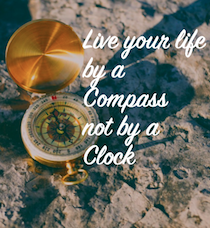Group MMSI Numbers on VHF Radios
Group MMSI
Group MMSI numbers are something we talk about regularly on our VHF courses but only a handful of people seem to use. After a round of VHF courses for our local sailing club we piqued enough interest to apply for a group MMSI. Pleased to report that Lilliput Sailing Club has now been granted a number by OFCOM. I thought it might be useful to explain a little more.
MMSI Numbers:
An MMSI number (Maritime Mobile Service Identity) is a unique identifier for radios capable of Digital Selective Calling. This can perhaps best be compared to a phone number. In reality, most fixed radios on boats are now digital and capable of DSC. Each boat or station will have its own individual MMSI number. We discuss this fully on our VHF courses or perhaps take a look at this ICOM article. We can then also subscribe to group MMSI numbers.
What is a Group MMSI number?
A Group MMSI number is used by organisations and event organisers to assist with radio communications. It allows one alert to be sent to all within that group at once. It is a useful way to communicate, send alerts and coordinate activity. To obtain a Group MMSI, an organiser must apply to OFCOM via the licensing portal. All MMSI number are nine digits, individual ship MMSIs will start with the Country code but Group numbers start with a single zero. Once a group number has been issued, the organiser will send this number out to their organisation. No longer will each individual boat have to be called.
How to use a Group MMSI?
The Group MMSI starting with a zero will be sent out to the group participants. Each participant should then enter this number into their phone books on their VHF radios, saving it under group number. Participants may belong to several groups. When the organiser wishes to send an alert to the whole group they will select this number when making a group call. Anyone who has the group number in their phonebooks on their radio will find that their radio starts sounding an alert. If the call is accepted the radio will default to the channel the announcer has chosen and everyone on that channel will hear the voice call.
Any participant can make a group call and it is up to the organiser to ensure it is used appropriately. The benefit of using DSC is that it doesn’t matter which channel each boat is on individually, they will still receive the alert.
An example:
Lilliput Sailing Club has applied for a Group MMSI number.
This has been granted. Guidance notes are prepared and the number sent to members to add to their phone books.
Anyone at LSC wishing to participate adds the number to the phone book on their radios.
- A rally is organised with 12 boats heading to the same destination, on arrival,the first boats notes there will need to be a slight amendment to the plans and sends a DSC Group call. Any boat in the group who has the number in their phonebooks will find their VHF radio sounds an alert. If they accept their radios will default to the channel chosen by the first boat and they will hear the voice call. Benefits: this saves multiple calls having to be made. It is clear there is a call as the alert sounds. Everyone receives the information at once.
- LSC boats are out sailing in the harbour when one of the dinghy sailors becomes becalmed – they are safe but it is going to be a long struggle back to shore. Knowing other LSC cruisers are around they send a Group call and see if any fellow member of the club will assist them.
- A LSC cruiser boat is on the mooring when they notice their tender has come adrift. They can see a fellow member on their boat two moorings away but don’t know the member well enough to have their individual ID in their phone book. They send out a group call and the other boat responds, retrieves the dinghy and new friends are made!
Notes:
- The voice call put out is not private. Anyone else who happens to be on that channel will still hear the call.
- On some radios, the receiving station will need to accept the call for their radios to change channel
- Only stations within range will receive the alert
We have training sessions planned at the sailing club – I’ll let you know how this goes. We just need a few people to engage and this will make event coordination easier. As a centre we regularly run refresher session for clubs or groups. Participants must already have an Authority to Operate (usually their SRC/completed their VHF course). If you’d like us to organise a session for your group or crew please contact us.












